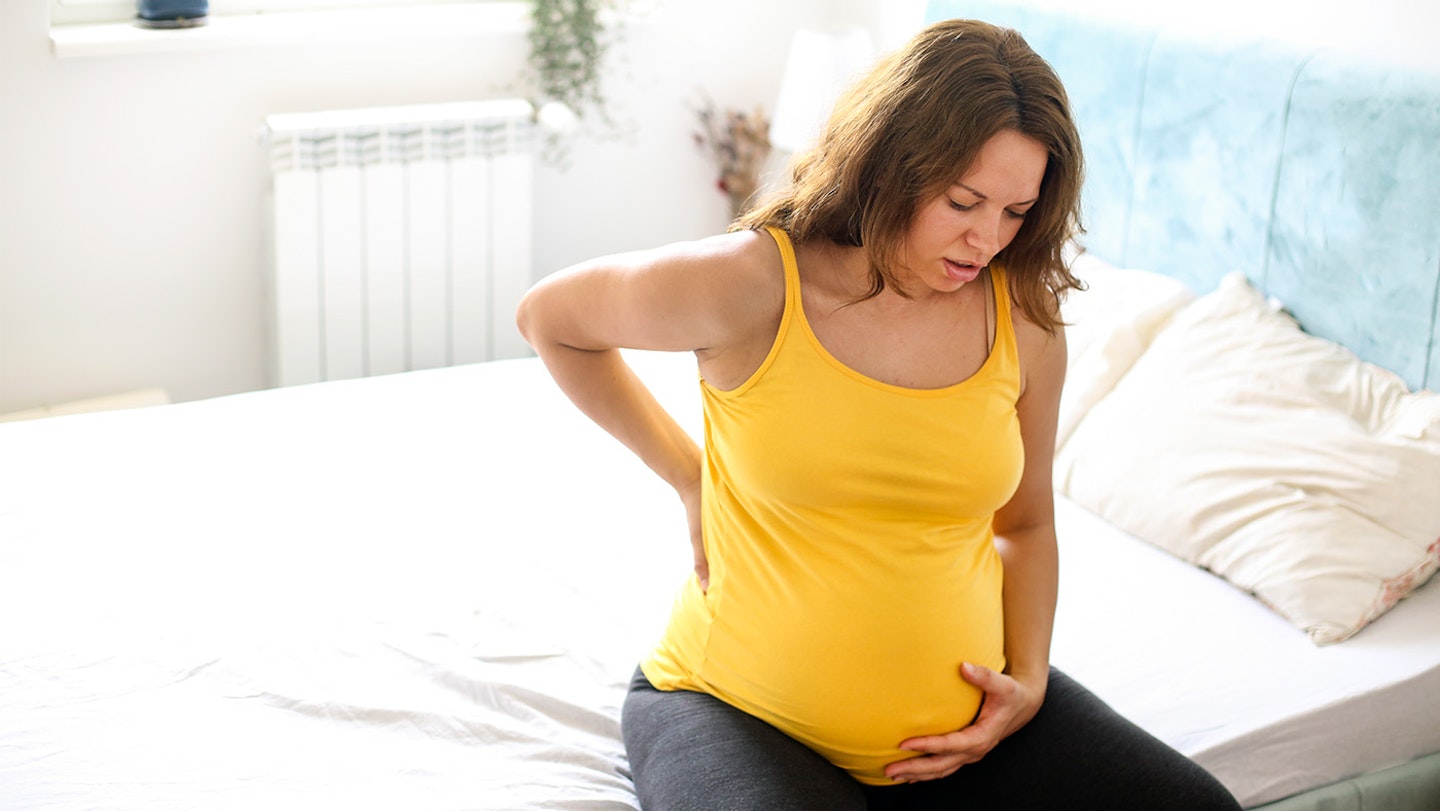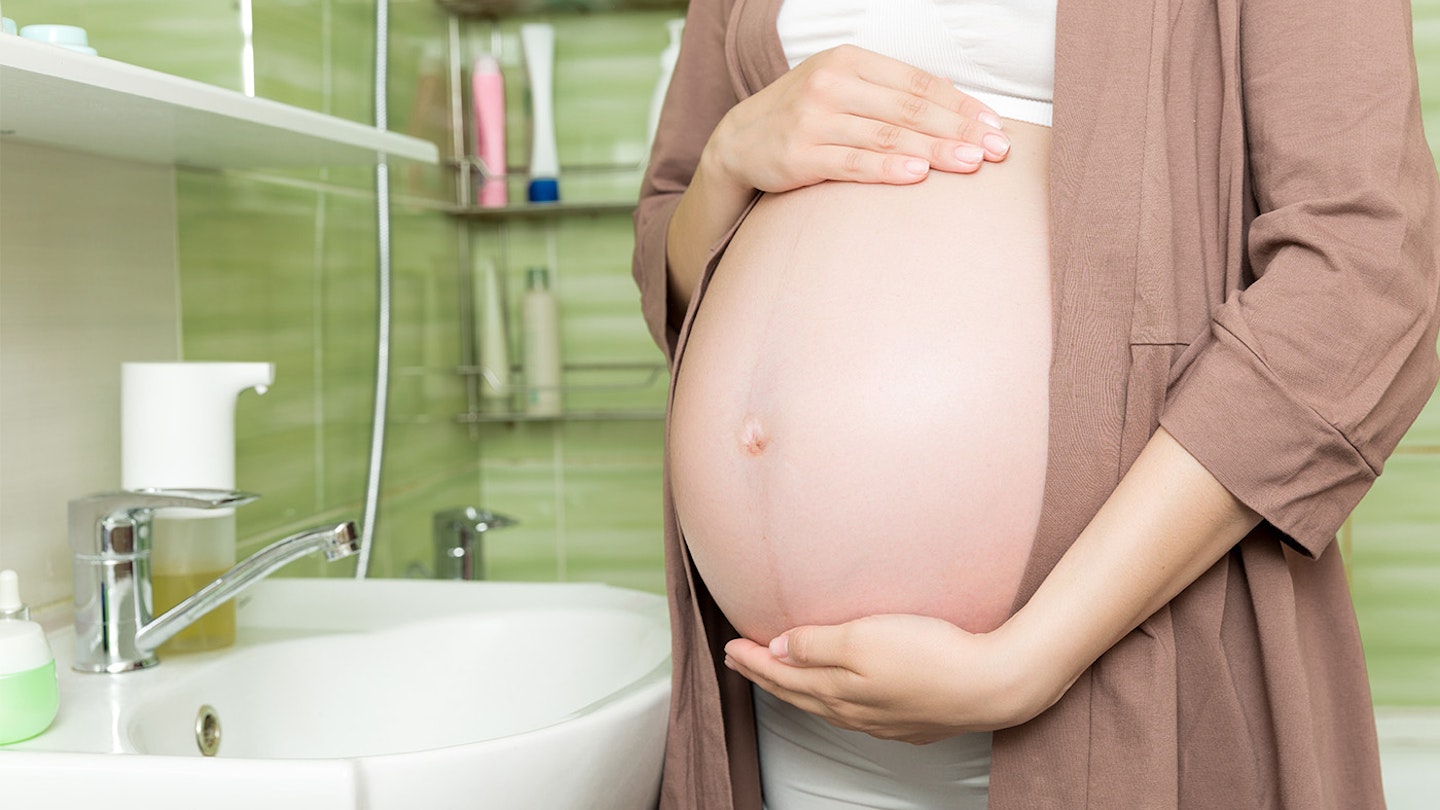For many parents, 'waters breaking' tends to be one of the first signs of labour. And although we're used to seeing those dramatic film scenes where it suddenly all gushes out like a tidal wave in the middle of the supermarket, that's not always how things go...
What are my 'waters'?
Whilst our babies are growing inside us, they are surrounded by a fluid-filled membrane sac. Although we often describe this sac as “my waters” it actually belongs to the baby and is all as one with the placenta (afterbirth), the umbilical cord and the baby themself.
As well as protecting the baby from knocks and bumps, the stretchy sac and the fluid also gives the baby the space to move around and exercise.
The fluid is a wee bit thicker than plain water and thinner than the wet watery discharge you get during pregnancy, so gives some resistance to the muscles and joints as your baby moves which helps ensure they are really toned and strong when they are born. Imagine doing aqua aerobics for nine months! The membranes (there are two and they stick together like two-ply toilet tissue) are very strong and stretchy so no amount of kicking can damage them.
As your baby grows, they start to swallow and breathe the fluid. This helps their gut and kidneys to stay healthy and also exercises the intercostal muscles between the ribs so that they will be able to breathe and cry lustily at birth. The fluid keeps the temperature inside the womb nice and steady and also helps to ease the strength of the labour contractions for the baby by spreading their power across the whole body surface
The amniotic fluid itself is made from mum’s plasma as well as from the baby’s urine and lung secretions. The fluid is swallowed by baby and reabsorbed and more is made - a constant refreshing of the fluid. Baby gets some nutrients from the fluid as well as some infection-fighting antibodies. By the time you reach about 36 weeks of pregnancy, there will be around 800mls of fluid and then the amount gradually reduces until, by the end of pregnancy, there will be closer to 600mls. The bigger your baby is the more fluid there will be and, if you’re pregnant with twins or multiples, there is likely to be a lot.

What does it feel like when my waters break?
This can differ from woman to woman. It’s not always easy to tell, especially if there is only a tiny leak in the membranes and only little squirts of water come out.
Many women feel the bag pop. It feels like someone has blown up a brown paper bag inside you and then popped it - a sudden loss of pressure and a sense of something “going”. Some women get a very audible “BANG!” and sometimes other people in the room can even hear it. With my fourth son, my waters went at 5am and the bang was so loud that it woke my husband up!
What to do when your waters break
As soon as you feel the bag pop, immediately clench your pelvic floor muscles strongly and get to the loo. Once there, relax and the fluid will end up going there instead of all over your bed or carpet. If you’re too late, remember that that is why we have household insurance...
Pop a pad in place as you’re going to keep making amniotic fluid even after the bag has burst so you do need to protect your pants - and you will notice that amniotic fluid isn’t the same colour as pee. Amniotic fluid is clear, slightly milky or very light pink. It also smells different from pee, like a body fluid with its own distinct odour which is fresh and not at all horrid.
Whenever your waters break, whether before or after contractions have started, you should call your midwife or birth centre (you will have been given a phone number) who will check you and the baby and advise whether or not it’s ok to stay at home for now or to come into the birth centre or hospital.
If you are concerned that your waters are smelly or coloured or if you are losing blood, you should tell the maternity unit immediately so that both you and your baby can be checked.
The membranes are evolved to stay put until the time is right for them to break. Because the fluid is constantly being made, absorbed and made again, the baby doesn’t 'dry out' if your waters go. In fact, you’ll just have rather a leaky labour! If you are in very early pregnancy and your waters go then your baby might not survive. This is because your labour is likely to start and baby might be too little and weak to be born.
If your waters break before labour
If your waters go at the end of pregnancy and there is no labour then the chances are very high that labour will start naturally within a day or two and your baby is well developed to cope with this. Most hospitals offer induction within about 24 hours of the membranes breaking, along with antibiotics to reduce the risk of infection, and your midwife will be able to reassure you that your baby is perfectly fine and you can look forward to cuddling them soon, even though your waters went a little sooner than expected.
If your labour doesn’t start then there is a greater chance of infection but if you stay well and labour doesn’t start then your baby can still carry on growing and be born safe and sound, although potentially weaker than you might otherwise expect and so need special care for a while.
How do midwives check my waters have broken?
With your consent, your doctor or midwife will insert a speculum (a small plastic instrument) into your vagina as this allows them to see the neck of your womb. You may be asked to cough to encourage the waters to pass through from your womb.
If it's obvious that your waters have broken, you won't need to have this examination.
When will my contractions start?
The amniotic fluid and the hardness of a baby’s head on the cervix (neck of the womb) both cause contractions to start so, within 72 hours of the membranes breaking, the vast majority of women will have started in labour naturally.
What happens if my waters break but I don’t have contractions?
Despite what we always see on TV, the membranes do not have to break for labour to start. In fact, for most women, the contractions come first. The membranes are evolved to stay put right through labour as they help to protect your vaginal tissues from the bony head of your baby, and also ease the strength of the contractions for both of you. Some babies are even born in the sac (sometimes called a caul) and some people consider this to be good luck!
Most hospitals don’t wait as long as 72 hours since your waters have broken as this can increase your baby's chance of infection, so it is likely you will be offered an induction to start things off within about 24 hours if nothing has happened.
There are other options to being induced if contractions don’t start, so make sure to ask questions so that you can make a fully informed choice.
